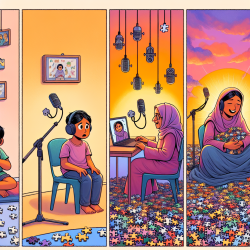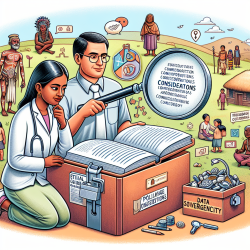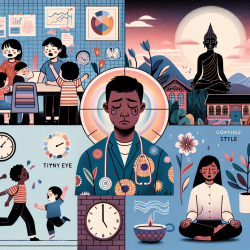Introduction
Family violence is a pervasive issue that affects individuals and communities globally. Indigenous populations, however, face unique challenges due to historical and ongoing impacts of colonization, which exacerbate the risk of family violence. The systematic scoping review titled Indigenous Cultural Safety in Recognizing and Responding to Family Violence: A Systematic Scoping Review provides valuable insights into culturally safe interventions that can be implemented by practitioners working with Indigenous families.
Key Findings
The review synthesizes findings from 34 articles, highlighting three thematic areas crucial for providing culturally safe interventions:
- Creating the Conditions for Cultural Safety: This involves centering Indigenous perspectives, acknowledging historical harms, and fostering trust. Practitioners should engage in self-reflection to understand their biases and work towards building non-judgmental, respectful relationships with Indigenous clients.
- Healing at the Individual and Community Level: Interventions should focus on holistic healing, considering the interconnectedness of individuals, families, and communities. Practitioners are encouraged to integrate traditional practices and involve family and community members in the healing process.
- System-Level Change: Beyond individual practices, systemic changes are necessary. This includes training for providers on cultural safety, equitable distribution of resources, and policy changes that support Indigenous-led interventions.
Implementing Cultural Safety in Practice
For practitioners, implementing these findings involves several actionable steps:
- Engage in Continuous Learning: Stay informed about the historical and cultural contexts of the Indigenous communities you serve. This knowledge is crucial for understanding the unique challenges they face.
- Build Trusting Relationships: Take time to establish rapport with clients. An unhurried, respectful approach can encourage disclosure and facilitate healing.
- Integrate Traditional Practices: Collaborate with Indigenous communities to incorporate traditional healing practices into interventions. This approach respects and values Indigenous knowledge and can enhance the effectiveness of interventions.
- Advocate for Systemic Change: Work within your organization to promote policies and practices that support cultural safety. This includes advocating for training and resources that enable culturally safe care.
Encouraging Further Research
While the review provides a comprehensive synthesis of existing literature, there is a need for ongoing research to address gaps, such as the experiences of Indigenous 2SLGBTQIA+ individuals and the role of systemic racism in perpetuating family violence. Practitioners are encouraged to engage in or support research efforts that further explore these areas.
Conclusion
Implementing culturally safe practices is essential for improving outcomes for Indigenous families experiencing family violence. By centering Indigenous perspectives, fostering trust, and advocating for systemic change, practitioners can contribute to meaningful, positive change in the communities they serve.
To read the original research paper, please follow this link: Indigenous Cultural Safety in Recognizing and Responding to Family Violence: A Systematic Scoping Review.










